 |
| Illustrative photo. (Source: baochinhphu.vn) |
At the same time, this move will help to minimize the difference in tax obligations between business households and enterprises, ensuring tax fairness in business. The amendment of legal policies must be urgently completed in 2025 to promptly submit to competent authorities for promulgation, effective from January 1, 2026, including amendments to relevant tax laws and implementing guidelines.
With that goal, the Tax sector has set out many specific tasks, in which the amendment of the Law on Tax Administration and its guiding documents is given top priority. Accordingly, the Tax sector has identified the focus as supplementing and amending the provisions of the Law on Tax Administration No. 38/2019/QH14 to abolish the lump-sum tax for business households; At the same time, amending the regulations on invoices and documents for business households in the direction of requiring the use of electronic invoices in all cases where revenue is generated, replacing the previous retail invoices.
Situations where small, odd value invoices or fees and charges arise will be legalized with appropriate management solutions to facilitate and save costs for taxpayers. Along with that, guiding decrees and circulars will be reviewed for synchronous amendments, ensuring synchronous implementation and achieving results.
The Tax Department said that it is very important to supplement the regulation to clearly define: the tax management subjects are business households and business individuals who have registered their business (subjects that must register their business according to the Enterprise Law). In addition, the Tax sector is researching and proposing a new tax management model for business households in the direction of researching and proposing a business household management model after the abolition of lump-sum tax.
Accordingly, the Tax sector will classify by revenue scale to determine appropriate tax calculation/tax management methods, determine revenue thresholds to apply electronic invoices from cash registers; clearly define the roles and functions of departments in the tax authority in managing business households (registration, declaration, tax accounting, tax refund, tax exemption, inspection, debt collection enforcement, etc.), avoid vacancy or overlap of tasks when changing management methods.
The new model can consider the option of establishing specialized teams to manage business households declaring at local tax agencies, separate from the previous unit managing contracted business households, or converting to a management team model, supporting individuals and business households in declaring. Studying international experience, it is possible to classify business households according to revenue scale to apply appropriate management models (for example: micro households still declare taxes simply; large households manage like enterprises). This solution needs to be completed in 2025, as a basis for building a new tax management process.
In addition, grouping by revenue scale to determine appropriate tax calculation/tax management methods: currently, the number of stable business households with revenue of 200 million or less is about 1.5 million households (accounting for 65.7% of the total number of stable business households of 2.35 million households) with tax payable of 2,410 billion VND.
The number of stable business households with revenue from over 200 million to 3 billion VND is about 791 thousand households (accounting for about 33.6% of the total number of stable business households of 2.35 million households) with the tax payable of 7,886 billion VND. The number of stable business households with revenue from over 3 billion to 50 billion VND is about 12 thousand households (accounting for 0.6% of the total number of stable business households of 2.35 million households) with the tax payable of 1,032 billion VND. The number of stable business households with revenue from over 50 billion VND is about 1,464 households (accounting for 0.1% of the total number of stable business households of 2.35 million households), with the tax payable of 288 billion VND.
Based on the current data mentioned above, the Tax Department proposes a tax management model for business households based on the revenue threshold and tax rate of each tax. In addition, the amendment of personal income tax and value added tax policies is also carried out in parallel: reviewing the Personal Income Tax Law, the Value Added Tax Law and detailed regulations and instructions to adjust the non-taxable revenue threshold to suit the reality; considering raising the threshold to reduce the number of taxable households, focusing on households of significant size.
More importantly, the study proposes to amend the method of calculating personal income tax for business households with a "large scale" equivalent to the scale of small and medium enterprises so that it is similar to the corporate income tax of enterprises; consider applying personal income tax on income (revenue minus expenses) for business households with complete records, in order to encourage business households to be transparent about costs, invest in business expansion without being disadvantaged compared to enterprises in terms of tax; recommend adding regulations on exemption/reduction of personal income tax to encourage innovation (for example: tax exemption for income from transferring shares, contributing capital to innovative startups; tax incentives for experts and scientists at startups) to promote the private economy in the spirit of Resolution No. 68-NQ/TW.
In addition, in reality, it is also required to study and amend the accounting regime for micro-enterprises and business households to make it simple, easy to implement, and not create additional accounting staff. Specifically, it is necessary to study and amend Circular No. 88/2021/TT-BTC on the accounting regime for business households and individual businesses; Circular No. 132/2018/TT-BTC guiding the accounting regime for micro-enterprises; Circular No. 133/2016/TT-BTC guiding the accounting regime for small and medium-sized enterprises.
The goal is that when households become micro-enterprises, they do not need to hire additional specialized accountants and can maintain their own books on a supporting application platform. The Tax Department also builds and provides free digital platforms and accounting software for shared use by households and micro-enterprises: coordinates with software solution providers to build simple accounting solution packages, with state funding support for households to encourage participation.
Promote reform of tax administrative procedures for business households: in parallel with perfecting policies, continue to review administrative procedures related to business households to cut at least 30% of the time for processing administrative procedures, at least 30% of the cost of legal compliance and continue to cut sharply in the following years in accordance with the spirit of Resolution No. 68-NQ/TW. For business households, priority reform procedures include: first-time tax registration, temporary suspension of business, tax declaration, electronic tax payment, use of invoices, declaration of tax exemption and reduction...
Forms and declarations will be shortened, unnecessary information fields will be removed, and electronic tax declaration will be integrated as much as possible so that households only need to operate on computers/phones instead of submitting paper documents. For example, tax declaration form 01/CNKD and appendix 01-2/BK-HDKD will be revised after the tax is abolished, moving towards a smart electronic declaration form with suggested revenue data from the invoice system.
People's Newspaper
Source: https://baodongnai.com.vn/kinh-te/202510/khan-truong-ra-soat-hoan-thien-chinh-sach-thue-doi-voi-ho-kinh-doanh-dab19e6/







![[Photo] Cat Ba - Green island paradise](/_next/image?url=https%3A%2F%2Fvphoto.vietnam.vn%2Fthumb%2F1200x675%2Fvietnam%2Fresource%2FIMAGE%2F2025%2F12%2F04%2F1764821844074_ndo_br_1-dcbthienduongxanh638-jpg.webp&w=3840&q=75)
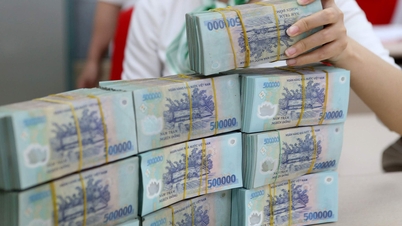




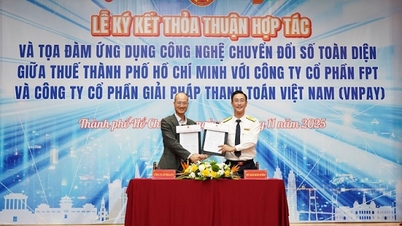






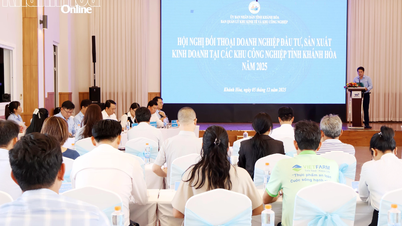



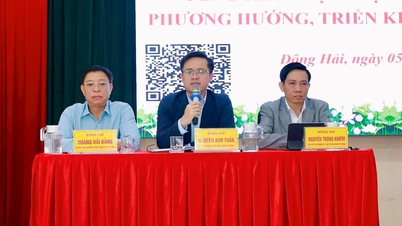









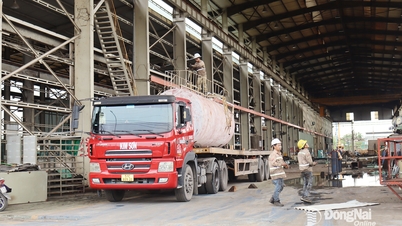

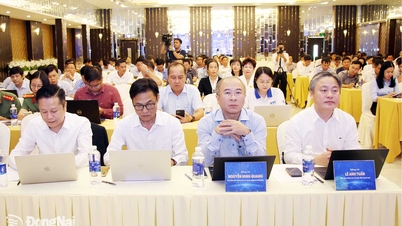










































































Comment (0)